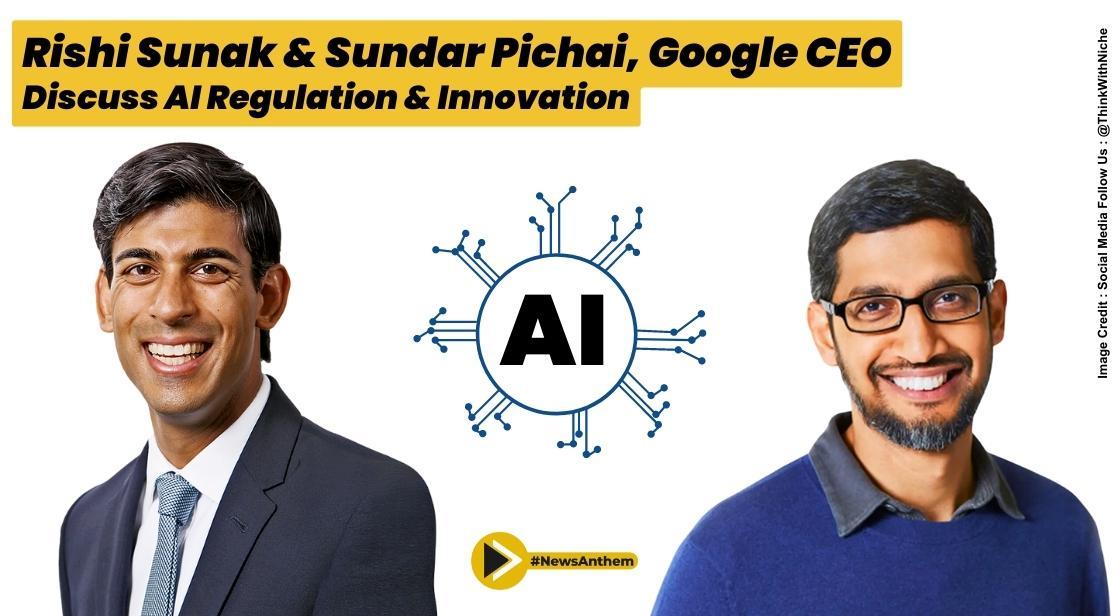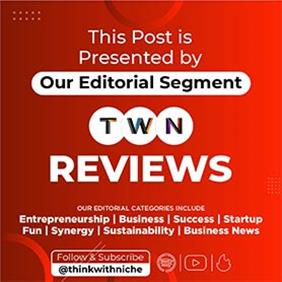Rishi Sunak and Sundar Pichai, Google CEO Discuss AI Regulation and Innovation

News Synopsis
Rishi Sunak and Google CEO Discuss AI Regulation and Innovation
In a recent meeting, Rishi Sunak, the UK's Prime Minister, engaged in discussions with Sundar Pichai, CEO of Google and parent company Alphabet, to address the delicate balance between regulating artificial intelligence (AI) and fostering innovation. Downing Street emphasized the importance of establishing appropriate "guard rails" to ensure the safety of technology while promoting its advancement.
Prioritizing Tech Safety and Regulation
During the meeting at the Government's Darlington Economic Campus, Prime Minister Sunak and CEO Pichai delved into the significance of incorporating regulatory measures to safeguard against potential dangers associated with AI. Their concerns ranged from combating disinformation and protecting national security to addressing "existential threats." Recognizing the need for a comprehensive approach, they discussed the necessity of finding the right equilibrium between regulations and driving innovation in the AI sector.
Collaboration for Safe and Responsible AI Development
The discussion between Mr. Sunak and Mr. Pichai also touched upon the potential for industry collaboration and international cooperation in the development of safe and responsible AI. Both leaders recognized the importance of exploring opportunities to foster partnerships that would ensure the ethical and secure evolution of AI technology. They expressed a commitment to maintain communication on this pressing matter.
AI's Impact on Jobs and National Security
Concerns Surrounding AI's Effects on Employment
While Mr. Sunak has been a vocal proponent of AI's benefits for national security and economic growth, growing concerns have emerged regarding the implications of this rapidly evolving technology. The prominence of AI chatbots, such as the ChatGPT bot, has raised questions about potential risks and consequences. The meeting with tech figures aimed to address these concerns, emphasizing the need for regulations to mitigate any negative impact on jobs and society.
Job Cuts and the Shifting Landscape of AI
The impact of AI on employment was further highlighted by recent announcements from companies like BT Group, which disclosed plans to cut up to 55,000 jobs by the end of the decade as part of a strategic shift towards AI and automated services. This development underscores the disruptive nature of AI and its potential effects on the workforce. Experts, including former Government chief scientific adviser Sir Patrick Vallance, have drawn parallels between the potential impact of AI on jobs and the transformative effects of the Industrial Revolution.
Acknowledging the Challenges of AI Chatbots
Geoffrey Hinton, a highly regarded figure in the field of AI and often referred to as the godfather of AI, recently expressed concerns about the potential risks associated with AI chatbots, describing some of their dangers as "quite scary." His departure from Google coincided with this warning, drawing attention to the complex ethical considerations surrounding the development and deployment of AI chatbot technologies.
Conclusion
The meeting between Rishi Sunak and Google CEO Sundar Pichai emphasized the need to strike the right balance between AI regulation and innovation. Downing Street highlighted the importance of implementing regulatory measures to ensure the safety and responsible development of AI technology.
The discussions also explored potential opportunities for industry collaboration and international cooperation in shaping the future of AI. However, concerns remain regarding the impact of AI on jobs and national security, with job cuts and the transformative effects of AI on employment being significant considerations.
Furthermore, the potential risks associated with AI chatbots were acknowledged, prompting the need for careful ethical considerations in their development and deployment. As AI continues to evolve, finding the optimal approach to regulation and fostering innovation remains crucial for harnessing the benefits of this transformative technology while mitigating potential risks.









